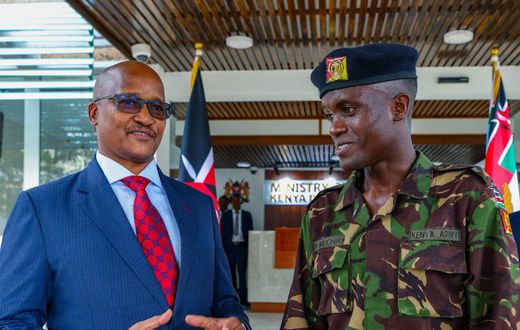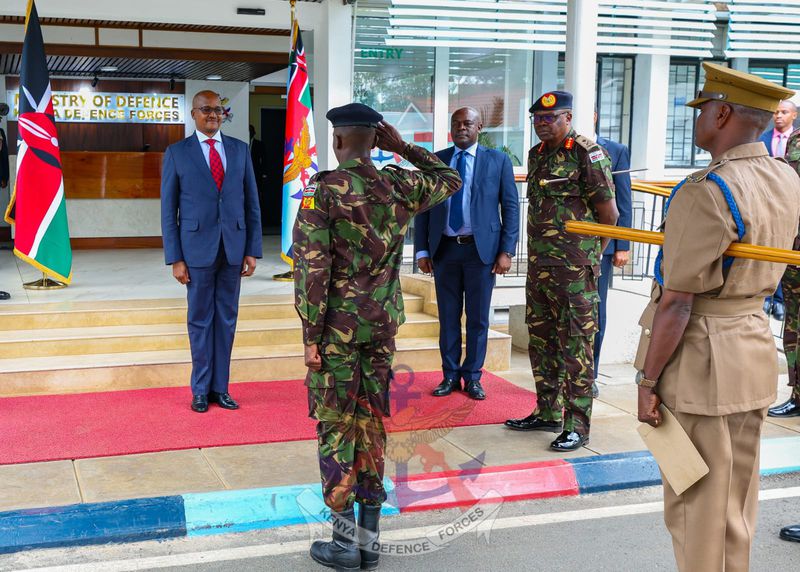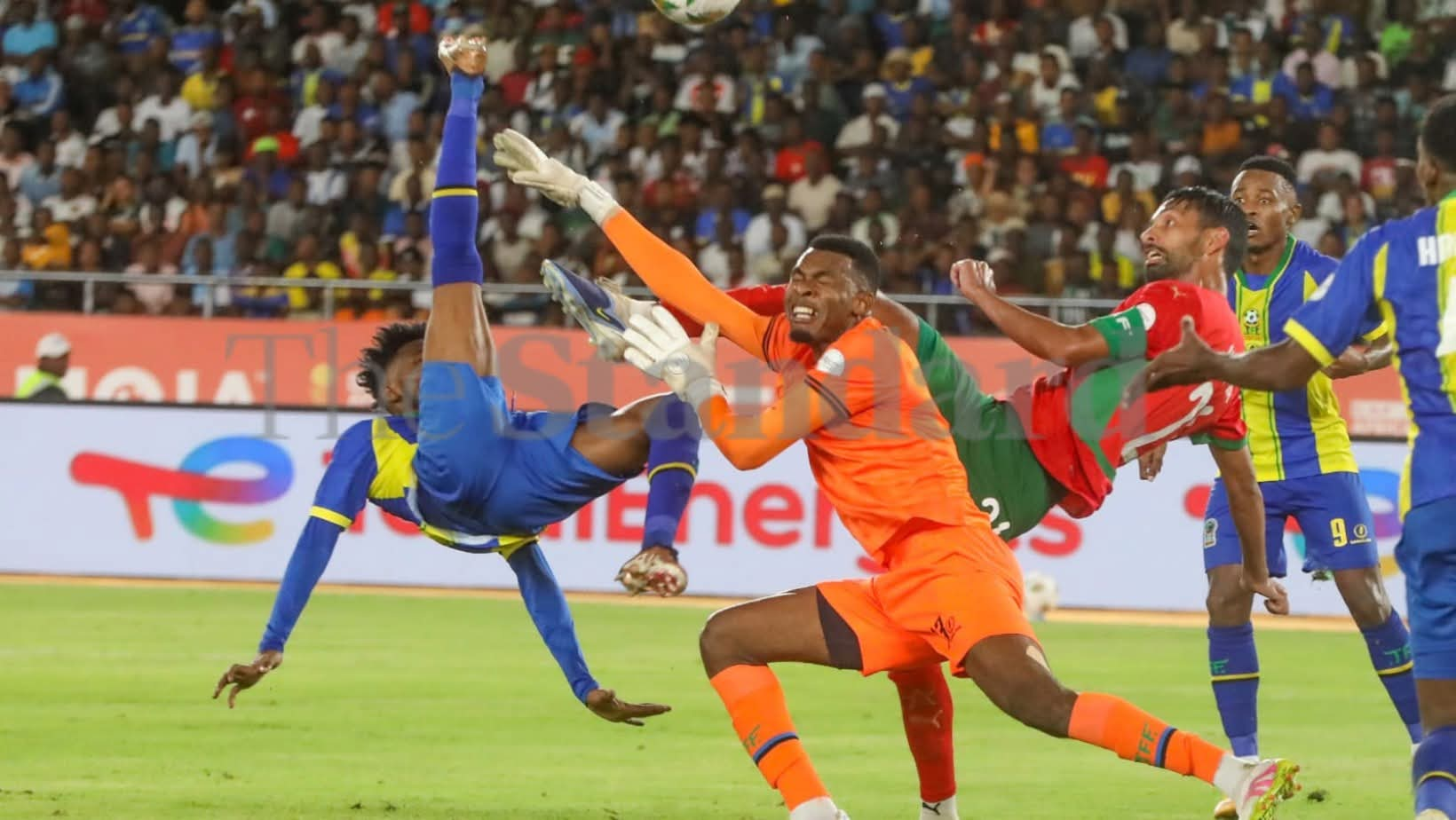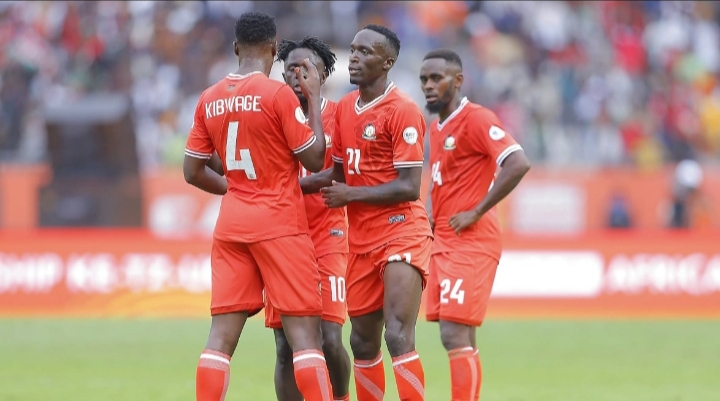
When the Chief of Defence Forces General Charles Kahariri stood before Kenya Defence Forces personnel in August 2025, the announcement he made carried more than ceremonial weight. Boniface Muchiri, a Harambee Stars midfielder and Ulinzi Stars captain, was promoted to the rank of Corporal. The decision followed his exceptional performances during the 2024 African Nations Championship (CHAN), where Kenya impressed by reaching the knockout stage. For many Kenyans, this was not just a football story or a military routine. It was proof that discipline, resilience, and service can cross boundaries between sports and national duty.
Football and military service may look like two different worlds, but in Kenya, the connection runs deep. Clubs like Ulinzi Stars have long represented the military on the football pitch, carrying with them the pride of the institution while competing in domestic and continental tournaments. Muchiri’s promotion is a fresh reminder that the discipline and teamwork of the barracks translate seamlessly to the football field. For the player himself, it was not just a professional milestone but a recognition that his dual commitment to both the game and his service had made an impact far beyond the stadium.
The rise of Muchiri began long before he wore the Harambee Stars jersey or the KDF uniform. Born in Aleles village, Busia County, he grew up with football as an everyday companion. His mother recalls how he spent hours playing barefoot on dusty grounds, driven by passion rather than reward. Even as he pursued his education, he remained determined to balance books and sport. After completing secondary school, he made his way into competitive football through stints at Sony Sugar and Tusker FC before joining Ulinzi Stars in 2021. His journey reflects not just personal ambition but also the determination of many young Kenyans from rural areas who dream of careers beyond their villages.
By the time CHAN 2024 arrived, Muchiri had become a dependable figure in midfield. His energy, vision, and sharp passing were vital to Harambee Stars’ strong showing. The group stage victory over Zambia highlighted his ability to deliver in high-pressure moments. Fans celebrated his performance, but within the ranks of the Kenya Defence Forces, there was recognition of something greater. Here was a serviceman representing the country with distinction on a continental stage, embodying both the fighting spirit of the army and the creative brilliance of Kenyan football.
Promotions in the military are not handed out casually. General Kahariri, while presiding over the ceremony, emphasized the importance of discipline, service, and consistency. Muchiri’s case offered a perfect illustration of these qualities. His commitment to training, his leadership on the pitch as Ulinzi Stars captain, and his willingness to serve the nation in two different capacities made him stand out. For fellow soldiers and footballers alike, the message was clear: excellence in one area of service enhances excellence in another. The promotion was as much symbolic as it was practical, signaling to young servicemen and athletes that dedication pays off.
The symbolism of this promotion also extends beyond Muchiri as an individual. It highlights the role of sports within the Kenya Defence Forces and the wider society. Football has long been used as a tool for unity and morale. Within the KDF, it fosters teamwork, physical fitness, and discipline while also giving soldiers a platform to showcase their talent on national and international stages. When one of their own shines, the pride is collective. In Muchiri’s case, the KDF reaffirmed its commitment to nurturing sports as part of its culture, even as it remains focused on its core mandate of national defense.
At the community level, the promotion resonated powerfully. For the people of Busia County, the story of Muchiri is both personal and inspirational. From humble beginnings to national representation, his success illustrates the potential that lies in rural communities when talent is supported and discipline is maintained. His journey also underscores the importance of institutions like Ulinzi Stars, which not only compete in sports but also provide structured opportunities for young men and women to grow in multiple fields. For many families, his story is proof that careers can be built outside traditional paths, blending service, education, and passion.
Kenya is not alone in this tradition of blending sports and military service. Around the world, athletes in the military have represented their countries in different capacities. From South Korea’s footballers who balance military duties with their careers, to historical examples like military athletes in Europe, the balance between national service and sporting excellence is not new. What makes Muchiri’s case unique is the timing and the symbolic meaning attached to it. At a time when Harambee Stars are pushing to establish themselves as a continental force, his recognition strengthens the narrative that Kenyan football is intertwined with national pride and discipline.
For young people navigating their own paths, the story of Boniface Muchiri offers lessons that extend beyond the football pitch. First, it is a reminder that rejection and setbacks do not define the end of a journey. Muchiri himself faced career interruptions, including injuries and short stints abroad that did not work out as planned. Yet he returned, recalibrated, and continued to push forward. Second, it demonstrates the value of discipline in shaping success. Whether in sport, education, or military service, consistency and focus remain the common thread in achieving goals. Finally, it shows that recognition comes to those who not only excel but also serve with integrity and humility.
The Kenya Defence Forces leadership has also made it clear that Muchiri’s success is not just his own. In the same ceremony, General Kahariri received a performance report for Ulinzi Stars and emphasized the need for investment in the welfare of players, better facilities, and stronger management structures. This indicates that Muchiri’s story could be a catalyst for broader reforms and improvements within military sports. The long-term impact may well be a stronger team culture and more opportunities for the next generation of soldiers who are also athletes.
Boniface Muchiri’s promotion is more than a line in his career achievements. It is a symbol of what can happen when passion meets discipline, when service aligns with talent, and when institutions recognize the broader value of their members. It reflects a country where football is not only entertainment but also a platform for unity and pride. It also reflects a military institution willing to celebrate and reward the contributions of its servicemen and women beyond the battlefield. For the young boy in Busia dreaming of a future in sport, for the soldier in training camps, and for the football fan in Nairobi, this story is a reminder that greatness can emerge from the meeting point of discipline, talent, and opportunity.
The applause that followed General Kahariri’s announcement was more than ceremonial protocol. It was recognition of a journey that continues to inspire and a future that still holds much promise. For Muchiri, the whistle has not blown on his career. On the pitch, he remains a vital part of Harambee Stars’ ambitions. In the barracks, he has new responsibilities as a Corporal. And for Kenya, his story stands as a reminder that resilience, service, and excellence are never confined to one field alone.
Sources:
- Nation Africa: Coverage of Boniface Muchiri’s promotion in the KDF and remarks by General Charles Kahariri.
- The Standard: Reports on Harambee Stars players in CHAN 2024 and Muchiri’s standout performances.
- Sports Brief Kenya: Player profile on Boniface Muchiri, his career journey from Tusker FC to Ulinzi Stars.
- Busia County local press: Background stories highlighting Muchiri’s upbringing in Aleles village.
- Global football reports: References to military-affiliated athletes and comparisons with other countries’ approaches.








Comments (0)